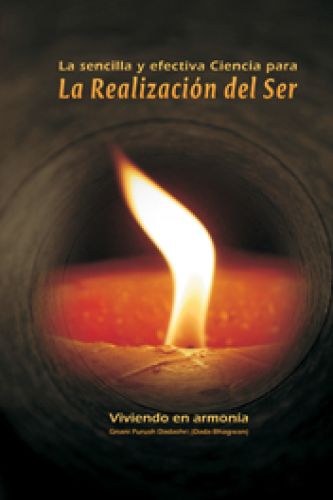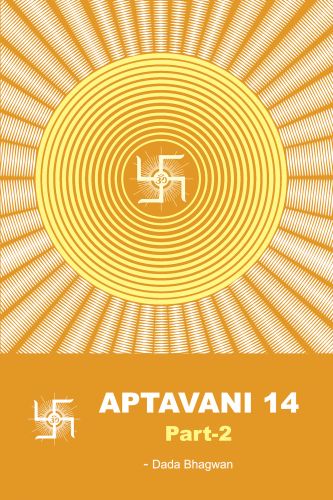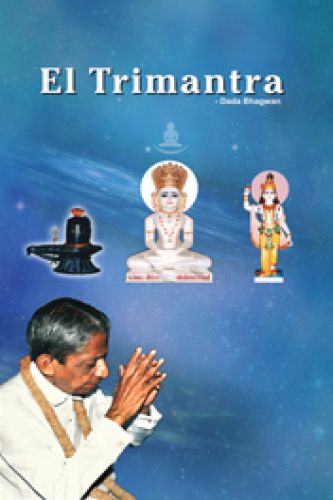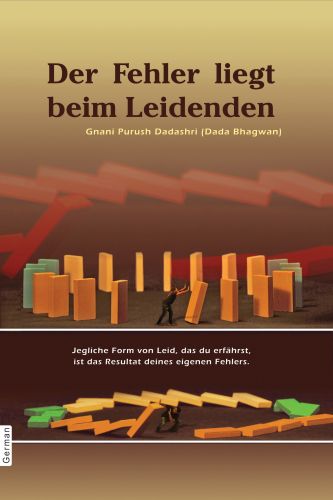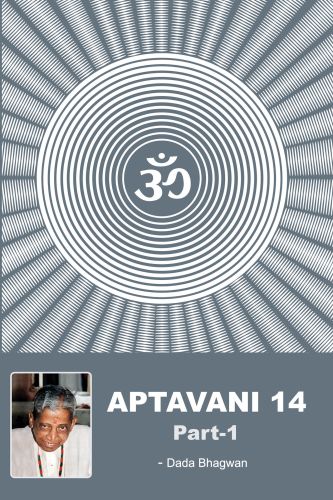Self-Help
- Abuse 1
- Anger Management 3
- Death, Grief, Bereavement 3
- Depression 4
- General 28
- Meditation 1
- Motivational & Inspirational 2
- New Age (Self Help) 2
- Personal Growth 19
- Sexual Instruction 6
- Spiritual
- Stress Management 5
Spiritual Books
Sort by:
by:
DadaBhagwan
¿ Qué es lo que buscan todos los seres (jivas) ? Lo que quieren es la felicidad, pero la felicidad no dura mucho tiempo. La gente va a bodas o al teatro para divertirse, pero la miseria vuelve otra vez. Cuando la infelicidad sigue a la felicidad ¿cómo podemos llamarla felicidad ? Es una felicidad del engaño. La felicidad debiera de ser permanente. El otro tipo de felicidad no es otra cosa que...
more...
by:
DadaBhagwan
¿Acaso nos quejamos a la alcantarilla cuando ésta huele mal? De la misma manera, hay gente que es desagradable y negativa como una alcantarilla. Todo lo que huele mal lo llamamos alcantarilla y a todo lo que huela bien lo llamamos una flor. Adáptate a ambos olores. Estas dos situaciones te están diciendo : “Conviértete en un Vitraag (en un ser libre de apego y de aversión) con nosotros (el mal y...
more...
by:
DadaBhagwan
Uno generalmente se irrita cuando las cosas no salen a su manera, o cuando la otra persona no lo comprende o cuando tiene distinto punto de vista. A veces nos enojamos cuando nos acusan de estar equivocados. Pensamos que estamos en lo correcto por nuestra percepción, la otra persona piensa lo mismo, a menudo ocurre cuando no tenemos ni idea de que hacer después, no se les ocurre el por qué estamos...
more...
by:
DadaBhagwan
Over the course of life, many people become puzzled by circumstances beyond their control – both their own and those of others. While investigating the principle of karma, one may still be left asking, “Why do bad things happen to good people?” In the book “The Science of Karma”, Gnani Purush (embodiment of Self knowledge) Dada Bhagwan explains a precise definition of karma, and how exactly it...
more...
by:
DadaBhagwan
Muitas pessoas lutam para entender o que é verdade, o que é certo e o que é errado. Existe um dilema contínuo para distinguir entre certo e errado. De acordo com Dada Bhagwan, o GnaniPurush (aquele que é iluminado), na vida terrena existem três tipos de verdade: a verdade absoluta ( doeu), a verdade relativa e a inverdade. Neste livro, Dadashriaborda o significado da verdade absoluta e relativa. A...
more...
by:
DadaBhagwan
Wohltätigkeit bedeutet, anderen Lebewesen, Menschen oder Tieren, Glück zu schenken. Wenn du anderen Glück schenkst, wirst du als Ergebnis Glück zurückerhalten. Wenn du anderen Glück schenkst, wird Glück augenblicklich zu dir kommen. Jedes Mal, wenn du wohltätig bist, fühlst du dich innerlich gut. Obwohl du dein eigenes Geld gibst, fühlst du dich gut, weil du etwas Gutes getan hast. Wenn du...
more...
by:
DadaBhagwan
The book presented here reveals the properties of the Self and identifies the problems because of which we are unable to realize the Self. The book is divided into two subparts: Part 2 This part discusses the six elements (soul, matter, gatisahayak, sthitisahayak ,kaal and akash) in details and how the whole world is a combination of these elements, and explains the characteristics of matter, property...
more...
by:
DadaBhagwan
La gente discute sobre lo que es “mío” y lo que es “tuyo” en la religión. Para mantener tales disputas a raya está el Trimantra. Cuando uno comprende el significado fundamental del Trimantra (una oración auspiciosa), uno se dará cuenta de que no es un mantra de una religión en exc lusiva, o de una secta o división de una religión. Los saludos en el Trimantra son ofrecidos a todos los...
more...
by:
DadaBhagwan
Wenn ein Mensch leidet, geschieht das auf Grund seiner eigenen Fehler. Wenn ein Mensch glücklich ist, ist das die Belohnung für seine guten Taten. Aber das Gesetz der Welt beschuldigt den Nimit (der scheinbar ’Handelnde’ – derjenige, der das Leiden verursacht). Gottes Gesetz, das Wahre Gesetz, findet den wahren Schuldigen. Dieses Gesetz ist exakt und niemand kann es jemals ändern. Es gibt kein...
more...
by:
DadaBhagwan
The book presented here reveals the properties of the Self and identifies the problems because of which we are unable to realize the Self. The book is divided into two subparts: Part 1 This part discusses which are the six eternal elements of the universe, the cause of rise of visheshbhav (“I”) and egoism. The soul remains in its original form but a separate identity (“I”) gets evolved due to...
more...


